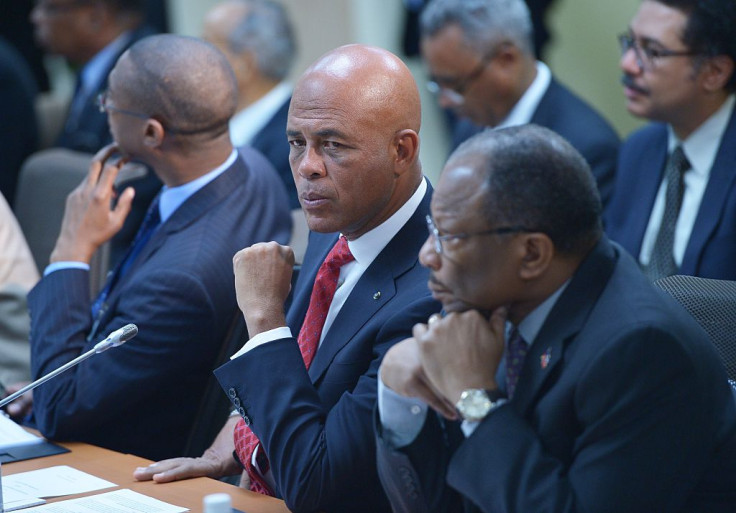
The United States has imposed sanctions on a former Haitian president over his involvement in drug-trafficking operations, accusing him of abusing his influence and sponsoring several of the country's powerful criminal gangs.
The Treasury Department alleged that Michel Martelly, who served between 2011 and 2016, played a key role in facilitating cocaine trafficking to the U.S. and laundered proceeds of the crime.
The action against Martelly "emphasizes the significant and destabilizing role he and other corrupt political elites have played in perpetuating the ongoing crisis in Haiti," said Bradley T. Smith, the department's acting undersecretary for terrorism and financial intelligence.
State Department spokesman Vedant Patel, on his end, said that the they prove the country's "resolve to promote accountability for all individuals whose activities contribute to gang violence and destabilize the political environment in Haiti, regardless of their rank or stature."
Several political figures in Haiti have been targeted by U.S. sanctions, as their relations with gangs have been a feature of the country. Corruption is also endemic, with new allegations surfacing at the moment even as the political sphere struggles to counter gangs advancing over the country's key institutions and infrastructure.
In fact, its newly-formed transitional council is being rocked by a scandal after three of its nine members reportedly demanded over $750,000 from a member of a state-owned bank in exchange for allowing him to retain his position. Unable to produce the amount, the man was allegedly told to "figure it out" by one of the council members.
The bank official, Raoul Pierre-Louis, said the councilmembers continued to pressure him by inviting themselves to his home for dinner the following Saturday. The accused council members have vehemently denied the bribery accusations, refusing calls for their resignation and alleging that Pierre-Louis is attempting to damage their reputations. And, in turn, Conille informed Pierre-Louis via letter that he was being removed from his position, with a commission taking over the bank's operations until a new board of directors is appointed.
The allegations have sparked a significant political controversy, with concerns that they could undermine the U.S.-backed transition efforts aimed at stabilizing Haiti and preparing for its first presidential and parliamentary elections in nine years.
Overseas, authorities recently fired most of the country's staff at its embassy in Surinam following concerns raised by French authorities about the possible involvement of its diplomats in the facilitation of illegal migration.
All but one of the Haitian diplomats stationed in Suriname have been recalled to Port-au-Prince, with 12 locally hired contractors being dismissed as well. Haitian Foreign Minister Dominique Dupuy, who ordered an internal investigation into the matter, informed French and U.S. officials of the decision, according to the Miami Herald.
The investigation was triggered after French authorities reported a surge in the number of Haitian migrants arriving in French Guiana via Suriname, many of whom were seeking asylum. It was discovered that at least one charter flight had transported Haitians from Port-au-Prince to Suriname's capital, Paramaribo, in early July.
The scheme reportedly involves Haitians paying up to $4,000 to a travel agency for flights into Suriname, where they then board buses destined for French Guiana or Brazil. In Brazil, they continue their journey northward to the U.S.-Mexico border, traversing the treacherous Darien Gap between Colombia and Panama.
© 2025 Latin Times. All rights reserved. Do not reproduce without permission.





